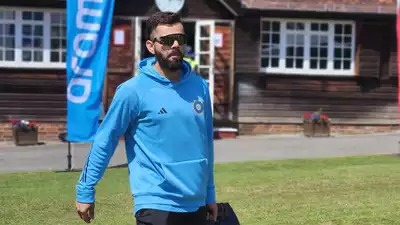
In November 2013, after playing his 200th Test and his last international game, Sachin Tendulkar sat in the Wankhede Stadium dressing room, all by himself, contemplating the moment. Here’s what happened next, in his own words: “As I sat in the dressing room, Virat [Kohli] walked up to me. I could see tears in his eyes as he approached me and held out a gift for me. It was evidently something very close to his heart. He said his dad had given it to him [a family heirloom for good luck] and he’d always wondered who he would pass it on to. I was speechless that he’d considered me worthy of such a rare honour. As we hugged, a lump had formed in my throat, and I asked Virat to leave before I burst into tears.”
By 2016–17, when Kohli fully took over the captaincy in all formats, the transformation was complete. Still combative and always a straight-shooter, he was unafraid to call the Australian captain a cheat without ever using the word, or take on the media for criticising MS Dhoni and questioning his place in the team. It was no surprise that the man had the unqualified loyalty of the squad and the support staff. He wasn’t perturbed by the cutting words of Anil Kumble, the outgoing coach, in June 2017, nor by the backlash on social media prompted by Kumble’s ouster.
This extreme self-assurance, mistaken for arrogance by some, is also key to understanding the Kohli phenomenon. That, and what Tendulkar describes as his “peripheral vision”. “He can read the game brilliantly and can anticipate the run of play well in advance,” said Tendulkar. “That’s what makes him stand out. That’s why he is so good in a run chase. He knows and understands where a match can be [before it gets to that point], which helps him marshal his resources better.”
Most importantly, at the moment, Kohli is completely at peace with himself, having regained his form, and that’s where you want your best to be ahead of the big final. That wasn’t the case in 2021 ahead of the match against New Zealand. That he desperately wants to win a World Test Championship, the ICC blue-riband tournament that would have a definitive impact on his legacy, is well known. It didn’t happen in 2021, but Kohli has not stopped trying. And if you see him bat and run the way he does, you can sense the commitment that defines him on the field. A supreme athlete committed to a cause, Indian cricket, is in a good space and fully switched on.
Also Read: The WTC Final at The Oval is Rohit Sharma’s Tryst with Destiny
Many say that he has a great record against Australia in Australia, but not so in England. He was brilliant on the 2018 tour against Jimmy Anderson and company, but in 2014 and 2021, he did not have the best tours. And this argument is used to suggest that in England, more than Australia, Virat isn’t the same player that the world fears.
Two things here. He is not playing England in England. He is playing Australia, and the Australians would also want a feel of the conditions just like the Indians would. They don’t know the conditions as well as the English, and to think that they will be able to bowl as well to Kohli is mere assumption. In English conditions, Pat Cummins is no Anderson.
Secondly, The Oval is as close to the kind of wicket that Kohli loves as he will get in all of England. It has more bounce than any other track, and is more a kind of Australian wicket than English. And we all know that Kohli loves to bat on Australian wickets. For India and for Kohli, The Oval could just be the track that helps define his contribution in the final. An in-form Kohli can punish Australia. He closed the IPL in style, and is clearly batting well. All we need is for him to have some luck early on against good balls, and we could well see a masterclass in the final.
The Kohli story, despite the sheer scale of his achievements, isn’t complete yet. While the 2018 series against England stands out for his excellence, the series victory in Australia had given Virat a serious push as captain. But he didn’t win an ICC trophy as leader, and that is something that surely rankles him a bit. In Australia in 2021, he was at best the absent present. Despite Ajinkya Rahane repeatedly saying that Kohli was the captain, and that he was happy being the deputy, the series victory is still ascribed to Rahane as the leader.
Is Kohli aware of the enormity of the task on hand at The Oval? Does he know what another failure in a final might lead to? While he will get another opportunity with the 50-over World Cup in India in October–November, the more immediate focus is The Oval. Can Kohli lead from the front, propel India to an ICC championship win and put all debate to rest? If you know the man and his hunger, you wouldn’t want to bet against him.
Also Read: India’s Batting Faces Acid Test in WTC Final



